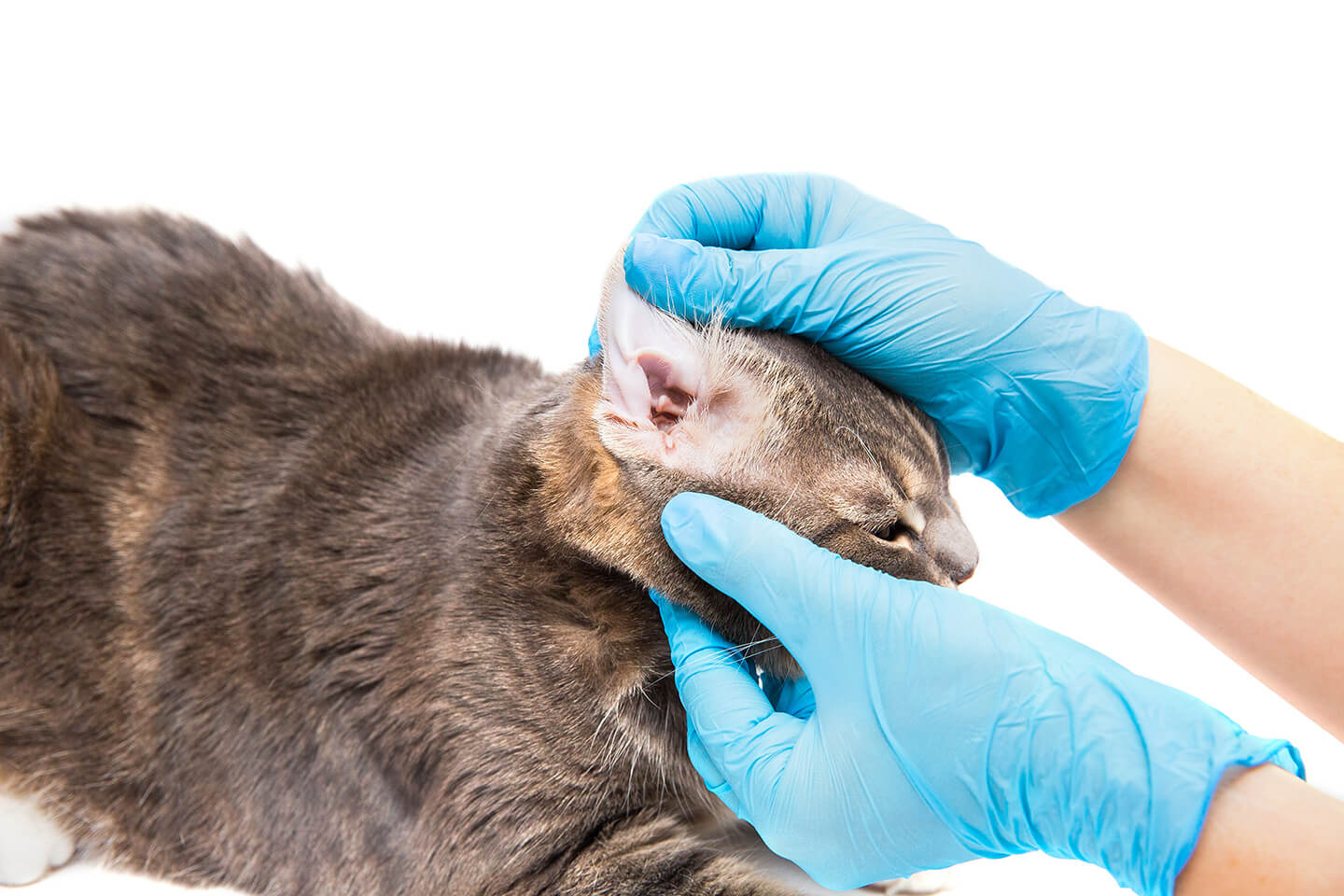
- by Dr.Thilo Senst
Chronic Ear Infections in Cats: Long-Term Care and Management
- by Dr.Thilo Senst
Chronic Ear Infections in Cats: Long-Term Care and Management
Chronic ear infections in cats are a challenging health issue for many cat owners. Persistent infections can cause your cat considerable discomfort and may lead to other health complications if left untreated. This guide offers insights on long-term care, management strategies, and natural remedies for supporting your cat’s ear health.
Ear infections in cats are often caused by a range of factors, including bacterial infections, yeast overgrowth, and, in some cases, underlying medical conditions like allergies. According to Cats Protection UK, ear infections are fairly common in felines, with an estimated 7% of cats experiencing ear issues at some point in their lives. Chronic ear infections are classified as persistent or recurring infections that do not fully heal despite initial treatment.
Recognising the signs of a chronic ear infection is the first step in effective management:
If you notice any of these symptoms persisting for more than a few days, it’s essential to consult a veterinarian for a proper diagnosis.
Long-term ear infections often stem from underlying causes that need to be addressed alongside treatment. Here are some of the most frequent causes:
Long-term management of cat ear infections involves more than just treating symptoms; it requires a preventative approach to ensure your cat’s ears remain healthy. Chronic ear infections can lead to scarring of the ear canal, affecting your cat’s hearing and increasing the likelihood of future infections.
Managing chronic ear infections requires consistent care. Here are some long-term strategies:
Regular ear cleaning helps prevent the buildup of wax and debris that can encourage infections. Use a cat-specific ear cleaning solution, such as Dr. Senst Antiseptic Cat Ear Drops for Infections, to gently clean your cat’s ears once a week or as recommended by your vet.
If your cat's ear infections are related to allergies, it’s essential to identify and manage the allergens. Cats with food allergies may benefit from a hypoallergenic diet, while those with environmental allergies may need medication or changes in their environment.
A strong immune system is crucial for fighting off infections. Consider incorporating probiotics or immune-boosting supplements into your cat’s diet. A balanced diet rich in Omega-3 fatty acids can help reduce inflammation and strengthen your cat’s natural defences.
Avoid exposing your cat to water that could accumulate in the ears. Use a damp cloth for baths rather than submerging them. After cleaning your cat’s ears, gently pat them dry to avoid leaving moisture inside the ear canal.
Natural remedies can be a safe, complementary approach for managing your cat’s ear infections, especially when combined with vet-recommended treatments.
Apple cider vinegar has natural antibacterial properties and can be used in a diluted form to clean the outer part of your cat's ears.
Coconut oil’s antifungal and antibacterial properties make it a gentle option for treating mild ear infections. Rub a small amount of coconut oil on the outer ear to help soothe irritation.
Aloe vera is soothing and can provide relief for irritated skin. Use a small amount of pure aloe vera gel to reduce inflammation.
By adopting a long-term care approach, you can:
Q1: Can chronic ear infections lead to permanent hearing loss?
A: Yes, if left untreated, chronic infections can lead to scarring and hearing loss. Consistent care and monitoring are essential.
Q2: How often should I clean my cat’s ears if they have recurring infections?
A: For chronic conditions, cleaning once a week is recommended unless advised otherwise by your vet.
Q3: Are ear infections in cats contagious to other pets?
A: Some causes, like ear mites, can spread to other animals, but most bacterial or yeast infections are not contagious.
Long-term prevention is often easier and more comfortable for your cat than frequent treatment of recurring infections. Here’s a preventive checklist:
For cats prone to ear infections, Dr. Senst Antiseptic Cat Ear Drops for Infections can be a valuable addition to your long-term care routine, offering soothing relief and effective cleaning to prevent infections. Additionally, Dr. Senst Cat Calming Hemp Oil for Cats may be beneficial if stress exacerbates your cat’s symptoms, helping them stay calm and comfortable.
![]()
Enter your details & download our comprehensive 50+ page printable Dr. Senst Pet Care Planner completley FREE! - keep track of all your pet’s needs, from medical history and training to vet visits, grooming, diet, and more!










Share:
Natural Remedies for Cat Itching Paws: Home Solutions for Itchy Cats
Choosing the Best Dog Collar: A Comprehensive Guide